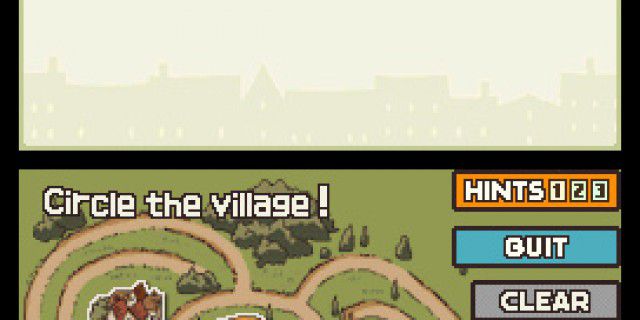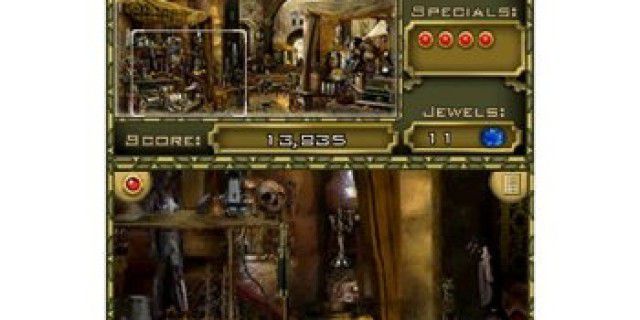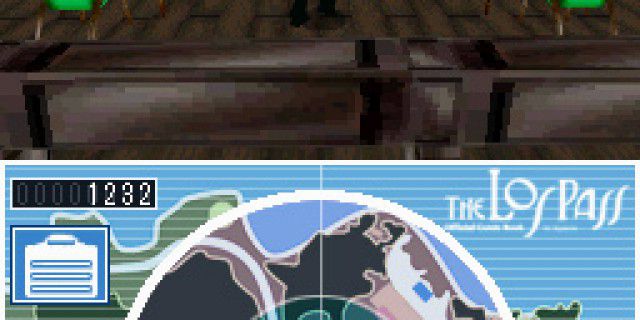Lux-Pain is a creepy anime story presented in the form of a visual novel on the Nintendo DS rather than a typical game. Lux Pain does have some interactive elements but there will be very few moments when you will be challenged or tested. As long as you bear this in mind you can take this DS title for what it’s supposed to be and enjoy it.
Your character, Atsuki Saijo, is investigating a plague that has struck Kisaragi City. Silent – a parasite that burrows into the body and drives its hosts to intense feelings of hatred and negativity has been spreading, causing its victims to commit terrible acts. Animals are being tortured and slaughtered in apartment buildings; suicides are being committed en masse and even Atsuki’s parents have fallen to the curse. The Silent is spreading from one source and it is your job to track it down and destroy it for good. It’s in the city somewhere, but where?
There are a number of locations in the city that you will need to explore. This is mostly done by simply tapping on a map which will take you to a still image of the place you are currently exploring. Because the environments cannot be interacted with (a la Phoenix Wright) the only possible events that can occur are a narration from Atsuki about the location or a conversation with one of the city’s esoteric citizens.
While you do have a small touch of control over the conversations (you can occasionally select an answer to a question, or a facial expression) most of the story will play out in front of you while you sit and listen. However most of the time you’ll be reading as this game is full of text! Atsuki has the power of ? (sigma), which means that he can sense Silent infections (called Shinen) and remove them. When he opts to do this a mini-game begins. You are shown the scene that needs disinfecting, whether it is a human you have been chatting to or an environment with someone’s Residual Shinen left on it. You will scratch away at this image with the stylus, until the little Silent worms reveal themselves. This will unlock a thought (usually called something vague and sinister like ‘That Boy’ or ‘I Want to Die’).
If this was taken from a person you then place the thought into their head so that you can read it. The contents of the thought will be displayed in a bizarre, dreamlike sequence on the top screen. This might give away a hint for the story, or it might just disturb you a little bit. After the game ends, an arbitrary points screen appears which rates you for how well you did, although you can’t really do badly, nor particularly well. With this mind-reading, along with the over-long conversations with a variety of anime chicks and Ricks, Atsuki is supposed to wander around the city and track down the source of the problem. This means bumbling around the various locations until a story event happens.
The lack of any decent gameplay makes this strictly a reading and listening exercise but a problem lies in this because the script is awful (presumably suffering from poor translation from its original Japanese source). At best this results in some very lazy sentences which includes examples such as: Ampersands in the place of ‘and’ plus random unexplained abbreviations which pop up out of nowhere leaving the reader befuddled. At worst there are sentences that make no sense whatsoever and seem to pay no attention to what came immediately before or after. The game even contradicts its own logic; the place Atsuki works for is interchangeably referred to as both ‘F.O.R.T’ and ‘Fort’.
Luckily the voiceover work is better. A decent amount of the dialogue is actually spoken by some worthwhile actors and while what they are saying doesn’t often match up with what’s on the screen, it usually makes a lot more sense. However it is also out of sync with the dialogue onscreen which often means you will often have finished reading it before it before the dialogue is half way through. All the music and sound effects are wonderfully atmospheric; the laments of lingering doubts and forgotten ghosts, it might be advisable to turn the volume up and close your eyes. You won’t be missing too much apart from some shoddy English usage and barely animated drawings.
Lux-Pain is scary and genuinely disconcerting but it lacks so much in so many different areas that it is hard to give the story the praise it deserves. Lux-Pain is not a game to be played late at night, or by an English professor. 3 out of 10, and that’s including a bonus point for the excellent soundtrack. If anything should have been released as a spoken word book and not a Nintendo DS release, it’s Lux-Pain.
Get Lux Pain now
New: Buy Lux Pain from Amazon.com

Related: Dragon Ball Z Budokai Tenkaichi 3 review, Bleach The Dark Souls review




